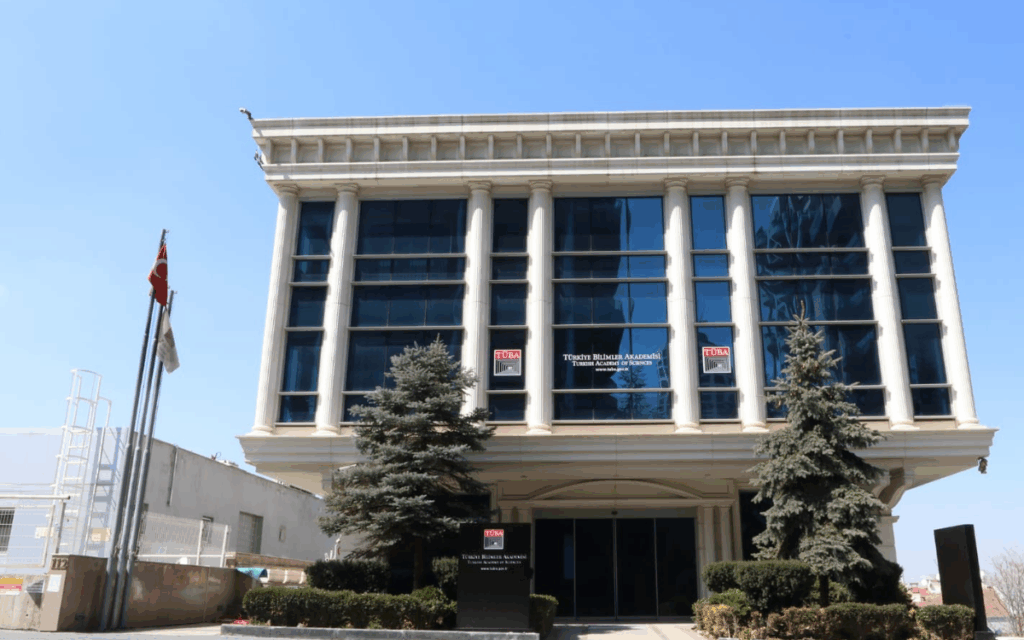A recent audit by the Court of Accounts has exposed troubling financial practices at the Turkish Academy of Sciences (TÜBA). The report highlights that funds earmarked for scientific research were misappropriated for personal purchases, including electronics, office items, and even non-scientific literature. With a budget of 135.5 million liras in 2023, the audit reveals potential misuse of taxpayer money that raises significant concerns about the accountability of public institutions.
| Article Subheadings |
|---|
| 1) Overview of Auditor’s Findings |
| 2) TÜBA’s Justification for Expenditures |
| 3) The Problem of Book Purchases |
| 4) Issues with Funding for Research Assistants |
| 5) Implications of Misuse of Funds |
Overview of Auditor’s Findings
The Court of Accounts has rigorously examined the financial dealings of TÜBA. The audit found that funds designated for scientific research had been diverted towards non-permissible personal purchases. This included a variety of items such as mobile phones, smartwatches, office desks, and chairs, which do not align with the intended use of the academy’s budget. Over a period of three years, 41 electronic devices were acquired by the academy, but not one was recorded as institutional assets. This raises alarms about accountability and adherence to the established financial guidelines that govern public institutions.
TÜBA, established in 1993 as a state-affiliated autonomous organization, is charged with conducting scientific reviews, supporting young researchers, and publishing scientific works. The audit indicated a total budget expenditure of 132.6 million liras out of the allocated 135.5 million liras for 2023, which presents serious discrepancies in how the budget is being managed. The findings have led to criticisms regarding the fiscal governance at TÜBA and pose questions about the oversight mechanisms currently in place.
TÜBA’s Justification for Expenditures
In reaction to the audit’s findings, TÜBA officials have defended the controversial purchases, asserting that these expenditures were indeed necessary for research purposes. They described the equipment and furniture as “essential” for adapting to the evolving demands of research in both natural and social sciences. The agency emphasized that in the context of technological advancements, the items procured were crucial for carrying out scientific activities.
Officials also asserted that the logistics of registering such purchases in the academy’s inventory were “practically impossible,” which raises further concerns about transparency. The lack of auditing and oversight may permit misuse of funds, leaving taxpayers questioning how their money is being utilized.
The Problem of Book Purchases
The misuse of funds extended beyond technology and furniture to include books purchased for research support. The audit revealed that many of these books were irrelevant to the researchers’ fields and had no scientific merit. Some of the volumes included self-help and classic fiction, which casts doubt on the academic rigor expected from an institution dedicated to scientific inquiry.
In its written defense to the Court of Accounts, TÜBA insisted that these purchases complied with existing regulations, but the audit emphasized a critical point: any books acquired under research support should be relevant and scientific in nature. The failure to adhere to this guideline further illustrates a troubling disconnect between the institution’s operations and its foundational mission.
Issues with Funding for Research Assistants
Another significant concern raised by the audit pertains to funding for research assistants. Payments were reportedly made based on self-declarations, lacking verification against official employment records. The Court of Accounts highlighted that service records from the Social Security Institution (SGK) were ignored in determining the eligibility of the assistants, which poses a risk of financial support reaching individuals who either do not work or have informal employment arrangements.
In defense of this practice, TÜBA maintained that the majority of these assistants were students engaged in intellectual activities rather than traditional employment roles. They argued that the nature of their tasks made it impractical to categorize them under standard employment regulations. However, auditors have pointed out that the lack of verification creates a vulnerability in the system, potentially leading to financial exploitation of the budget.
Implications of Misuse of Funds
The ongoing issues surrounding the misappropriation of funds at TÜBA raise critical implications for the governance of public institutions in Turkey. The financial irregularities undermine public trust and call attention to the possible need for legislative reform to enhance oversight mechanisms. The report’s findings may not only influence future budgeting decisions but could also prompt a broader conversation about the accountability of public agencies.
In addition, these developments raise questions about the effectiveness of existing regulations designed to safeguard taxpayer money. The emphasis on personal purchasing over essential research functionality suggests a systemic problem that could potentially affect the integrity of scientific research in Turkey.
| No. | Key Points |
|---|---|
| 1 | Audit revealed misuse of funds at TÜBA for personal purchases. |
| 2 | TÜBA defended purchases by citing research necessity. |
| 3 | Non-scientific books were among improper purchases made. |
| 4 | Payments to research assistants based on self-declaration, lacking verification. |
| 5 | Implications of the report raise questions on budget oversight. |
Summary
The findings of the Court of Accounts regarding the Turkish Academy of Sciences spotlight critical issues concerning financial management and accountability within public institutions. The misuse of substantial funds intended for scientific research raises pressing questions about governance, oversight, and the integrity of scientific endeavors in Turkey. Addressing these concerns will be essential to restore public trust and ensure that future research funding is used appropriately to advance scientific inquiry.
Frequently Asked Questions
Question: What were the specific findings of the audit at TÜBA?
The audit revealed that funds allocated for research were misused for personal purchases, including electronics and books unrelated to scientific inquiry.
Question: How did TÜBA justify their expenditures?
Officials defended the purchases by stating that the items were essential for research activities, claiming compliance with regulations.
Question: What implications do the audit’s findings have for future funding?
The findings may prompt legislative reforms and a reassessment of oversight mechanisms to ensure responsible management of taxpayer funds.


